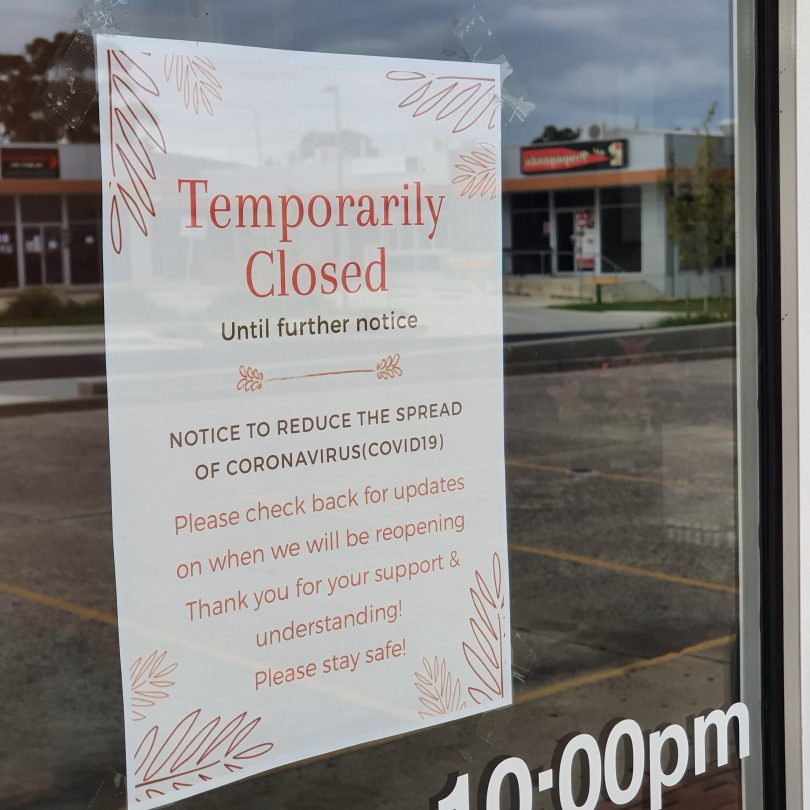
The outcome of the test case will provide answers for businesses that have so far been denied payouts for interruption due to COVID-19. Photo: Region Media.
The Insurance Council of Australia (ICA) has agreed to file a business interruption test case seeking a ruling on outdated policy wordings. The case will have significant consequences for the industry no matter which way it ends.
The primary purpose of the test case is to seek a decision on whether references to a quarantinable disease under the Quarantine Act 1908 should be construed as a reference to a listed human disease under the Biosecurity Act 2015 in various business interruption policies.
The outcome of the test case will provide answers for small and medium-sized businesses that have so far been denied payouts for interruption due to COVID-19.
Allinsure Managing Director Peter Chamberlain says if the insurers are successful in defending the case, clients will be left definitively uninsured for loss of income from the pandemic.
“But, if the claimants are successful in total or in part,” Mr Chamberlain explains, “there will be the need to review every single client’s policy wording to ascertain entitlement to claim, calculate the client’s losses, consider the impact of government stimulus payments received and settle accordingly.
“Even if this case goes against the ICA we must bear in mind there are other policy triggers that would need to be assessed before any claims could be paid,” he warned.
Chamberlain also expects a significant impact to insurers profitability, coverage availability and subsequent premium increases if insurers are unsuccessful.
Business Interruption Insurance typically insures a business against loss of revenue and helps to pay overheads and expenses such as payroll and leases on equipment during a period of downtime, helping a business return to the same financial position it was in prior to an incident.
Historically, when first offered, it only provided cover due to physical damage such as fire, storm, or theft to the insured premises. Over time, cover was expanded to cover other specific premises and included items such as loss of power if the local power station burned down.
Later, additional cover was provided in case a business couldn’t operate due to a localised disease, such as an outbreak of Legionnaires’ disease at a shopping centre when air conditioning towers become contaminated resulting in all shops having to close for a period of time. But consideration was never given to a global pandemic and premiums didn’t reflect this risk.
Following the SARS outbreak in 2003, insurers and reinsurers undertook financial modelling to understand the effect of a global pandemic on the insurance industry if cover was provided. They found it uncommercial to provide this cover, and it was never the intent to provide it.
Insurers and reinsurers subsequently adopted the Quarantinable Diseases Act as a model to remove this unintended cover. The Quarantinable Diseases Act was repealed in 2015 and replaced with the Biosecurity Act which was an amalgamation of the quarantine act and its amendments.
However, some insurers failed to update their policy wordings to reflect the new Act in the exclusion on some or all of their policies. It is this oversight that is now being tested in court.
The insurers position, as a collective, remains that there was never an intent to provide such cover.
“The legal challenge to the insurer’s position has been expected for some time,” Mr Chamberlain said.
“It is pleasing to see the ICA take an active role after involvement from the various regulatory bodies and to expedite an outcome and a legal position for the industry to follow.
“While we would like nothing more than these policies to respond to our affected client’s losses, we are also understanding of the position of the insurers that there was never an intent to cover such circumstances.
“The role of an insurance advisor is not to affirm or deny if cover will be granted, it’s to provide advice on how our clients can lodge claims. But, insurance advisers act in the best interests of their clients and not for the insurers. Either way, the outcome will be significant.
“In the meantime, we will be getting ready to assist our clients and any other affected businesses should coverage be confirmed, but we are also recommending that all those affected should act to best ensure their businesses continuity,” Mr Chamberlain said.

Allinsure Managing Director Peter Chamberlain says the outcome will be significant. Photo: Region Media.





















